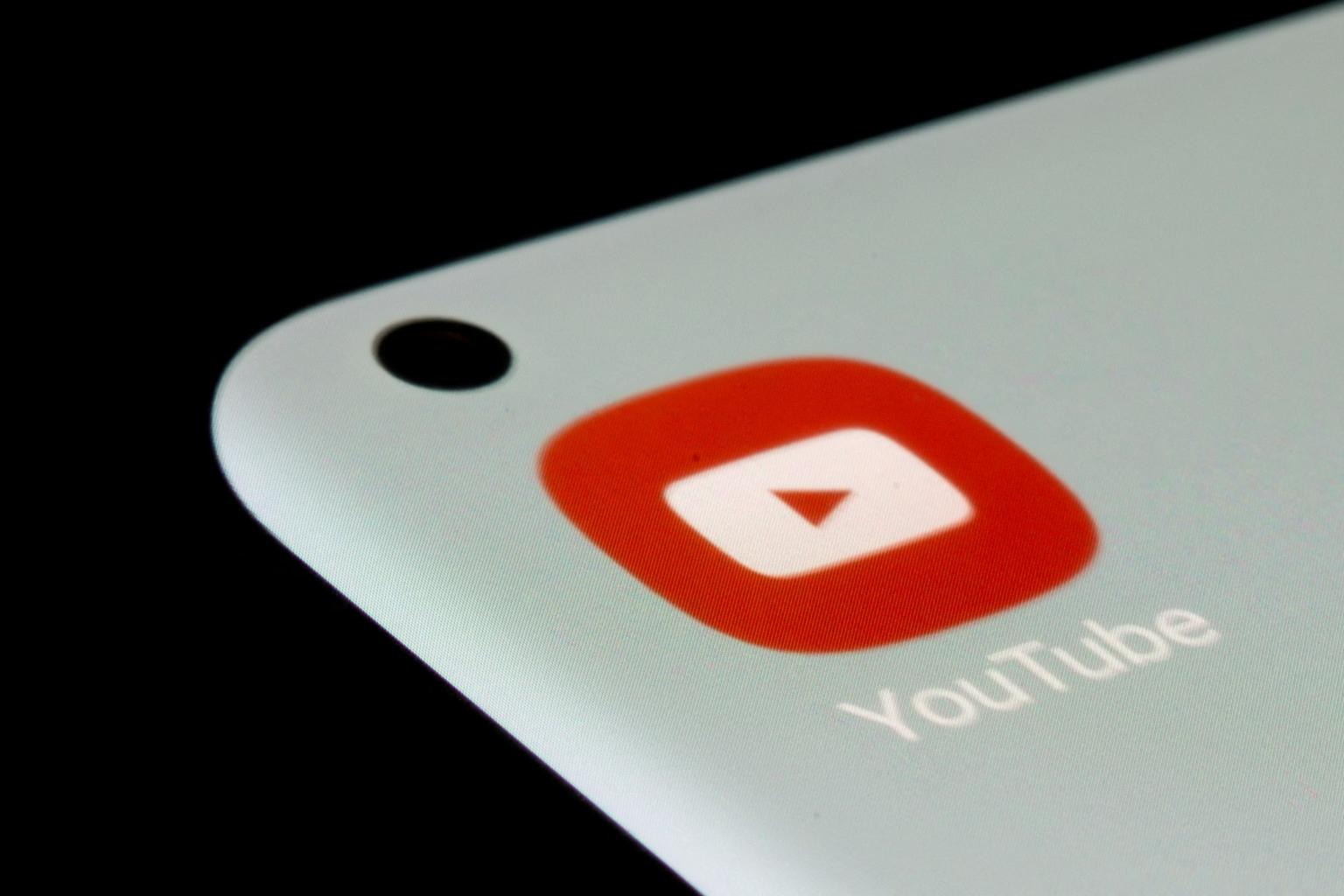Russia tells Google to stop spreading threats against Russians on YouTube
Sign up now: Get ST's newsletters delivered to your inbox

YouTube is under heavy pressure from Russia's communications regulator and politicians.
PHOTO: REUTERS
MOSCOW (REUTERS) - Russia on Friday (March 18) demanded that Alphabet Inc's Google stop spreading what it labelled as threats against Russian citizens on its YouTube video-sharing platform, a move that could presage an outright block of the service on Russian territory.
Google representatives in Russia did not immediately respond to a request for comment by e-mail. Google representatives outside Russia also did not immediately respond to requests for comment.
The regulator, Roskomnadzor, said adverts on the platform were calling for the communications systems of Russia and Belarus' railway networks to be suspended and that their dissemination was evidence of the US tech giant's anti-Russian position.
"The actions of YouTube's administration are of a terrorist nature and threaten the life and health of Russian citizens," the regulator said.
"Roskomnadzor categorically opposes such advertising campaigns and demands that Google stop broadcasting anti-Russia videos as soon as possible."
It was the latest salvo in sharply escalating tensions between Moscow and foreign tech firms over Ukraine.
In early March, Ukraine's "IT army" of volunteer hackers announced a new set of targets, which included the railway network in Belarus.
Belarus, a close ally of Moscow, has served as a staging post for Russian forces entering Ukraine.
YouTube, which has blocked Russian state-funded media globally, is under heavy pressure from Russia's communications regulator and politicians.
Outraged that Meta Platforms was allowing social media users in Ukraine to post messages such as "Death to the Russian invaders", Moscow blocked Instagram this week, having already stopped Facebook access for what it said were restrictions on Russian media.
Domestic alternatives
Former Russian President Dmitry Medvedev on Friday wrote a fierce criticism of foreign social media firms, namechecking both Meta and YouTube, but he hinted that the door leading to their possible return to the Russian market would be left ajar.
"The 'guardians' of free speech have in all seriousness allowed users of their social media to wish death upon the Russian military," wrote Mr Medvedev, who served as president from 2008 to 2012 and is now deputy secretary of Russia’s Security Council, on his Telegram channel.
Mr Medvedev said Russia has the necessary tools and experience to develop its own social media, saying the "one-way game" of Western firms controlling information flows could not continue.
"In order to return, they will have to prove their independence and good attitude to Russia and its citizens," he wrote. "However, it is not a fact that they will be able to dip their toes in the same water twice."
"The 'guardians' of free speech have in all seriousness allowed users of their social media to wish death upon the Russian military," wrote Mr Medvedev, who served as president from 2008 to 2012 and is now deputy secretary of Russia’s Security Council, on his Telegram channel.
Mr Medvedev said Russia has the necessary tools and experience to develop its own social media, saying the "one-way game" of Western firms controlling information flows could not continue.
"In order to return, they will have to prove their independence and good attitude to Russia and its citizens," he wrote. "However, it is not a fact that they will be able to dip their toes in the same water twice."
VKontakte, Russia’s answer to Facebook, has been breaking records for activity on its platform since Russia sent troops into Ukraine on Feb 24.
The site attracted 300,000 new users in the two weeks after Russia began what it calls a special operation to degrade its southern neighbour's military capabilities and root out people it calls dangerous nationalists.
On the day Instagram was blocked in Russia, VKontakte said its daily domestic audience grew by 8.7 per cent to more than 50 million people, a new record.
Russian tech entrepreneurs have said they would launch picture-sharing application Rossgram on the domestic market to help fill the void left by Instagram.
In November, Gazprom Media launched Yappy as a domestic rival to video-sharing platform TikTok.
The site attracted 300,000 new users in the two weeks after Russia began what it calls a special operation to degrade its southern neighbour's military capabilities and root out people it calls dangerous nationalists.
On the day Instagram was blocked in Russia, VKontakte said its daily domestic audience grew by 8.7 per cent to more than 50 million people, a new record.
Russian tech entrepreneurs have said they would launch picture-sharing application Rossgram on the domestic market to help fill the void left by Instagram.
In November, Gazprom Media launched Yappy as a domestic rival to video-sharing platform TikTok.


